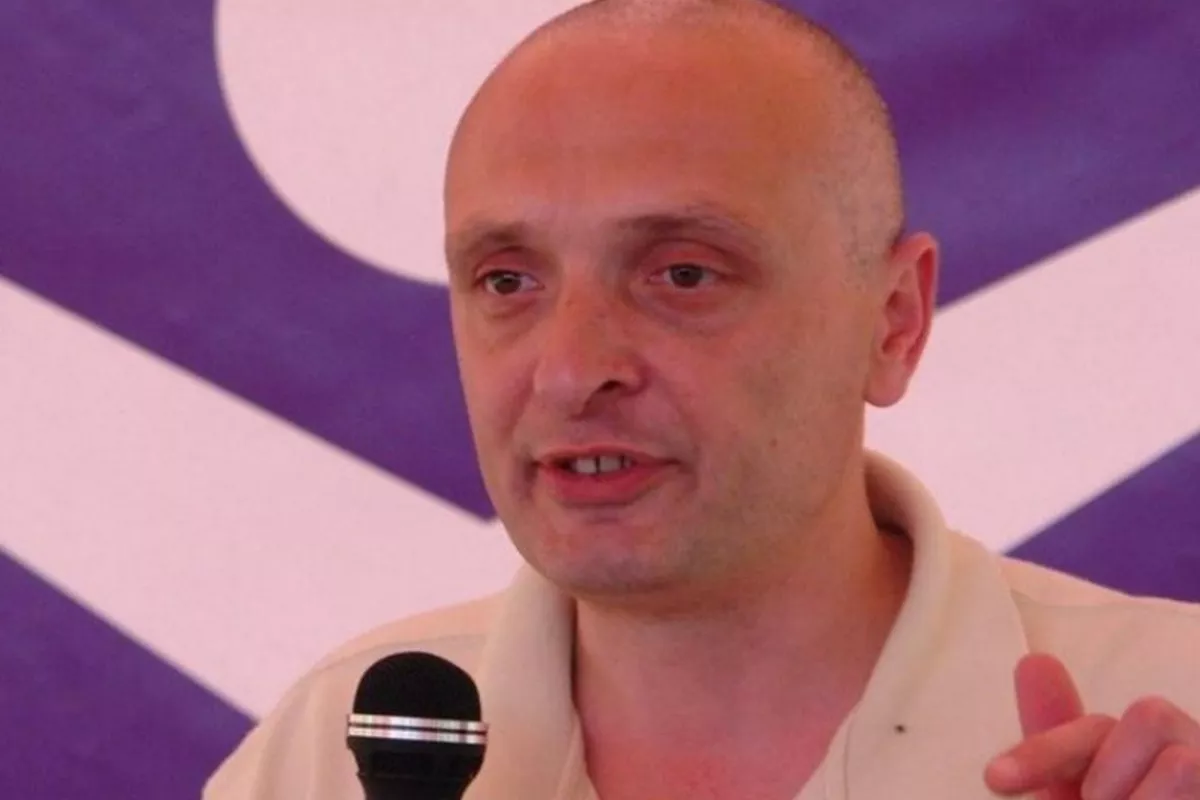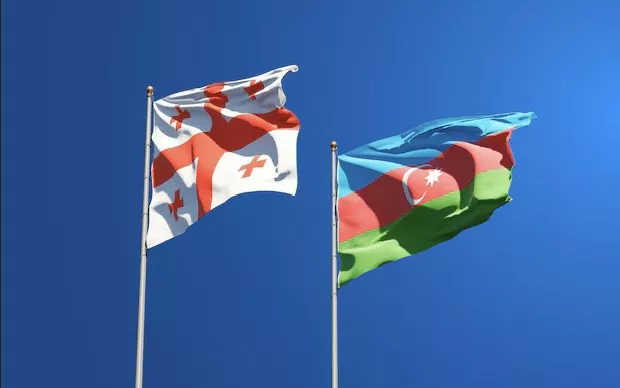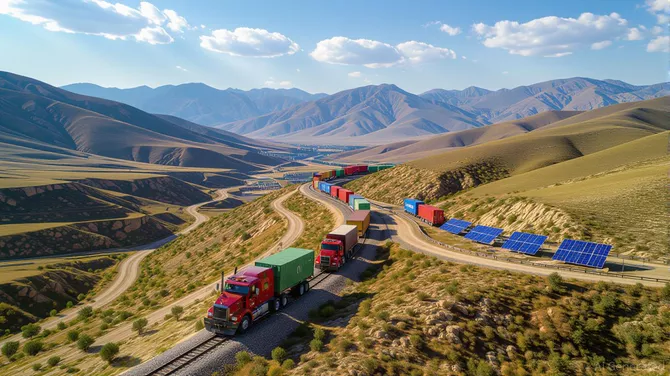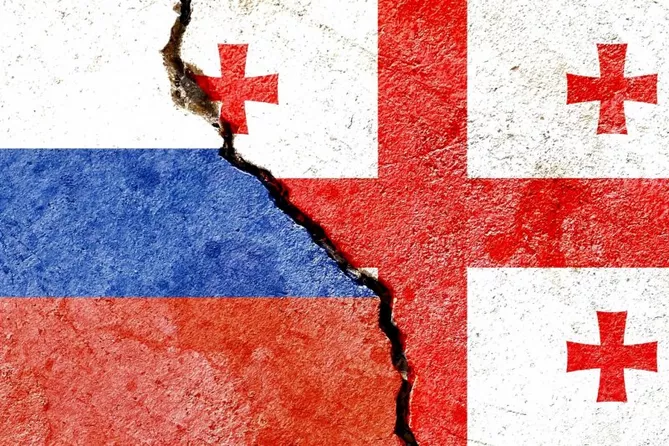
Georgian political expert Gia Kuchava
In an exclusive interview with The Caspian Post, Georgian political expert Gia Kuchava discusses Georgia’s evolving role in regional energy projects, including the Black Sea Energy Project, and the strategic implications of the Trump Route for International Peace and Prosperity (TRIPP) connecting Azerbaijan with Nakhchivan. He also provides insights on the recent return of former President Mikheil Saakashvili to prison, Georgia’s position in the 65th round of the Geneva International Discussions with Russia, and the broader challenges and opportunities for the country in regional trade, security, and diplomatic engagement.
- How do you assess the deepening cooperation between Georgia and Azerbaijan in light of the project to export green energy to European countries?
- Georgia is actively collaborating with Azerbaijan on the “Black Sea Energy” project. Within this framework, the two countries, along with Hungary and Romania, are developing plans for the supply, routing, transit, and export of green energy to Romania and other European nations.
The project is expected to strengthen both national and regional energy security, enhance connectivity across the Black Sea, diversify energy sources, harness the potential of renewable energy, and increase the share of renewables in the regional energy mix. Romanian Energy Minister Virgil-Daniel Popescu highlighted the importance of this initiative during his official visit to Azerbaijan in 2022.
While the idea of such a corridor had been discussed earlier, in 2020, then-Italian Prime Minister Giuseppe Conte threatened that Italy might leave the EU if the Green Corridor initiative were implemented, arguing that it would undermine the European single market. I would speculate that Conte’s position was influenced by Russia, noting that Italy was the only EU country to deploy Russian troops during the early stages of the COVID-19 pandemic in spring 2020. Many European journalists and political commentators also describe Conte’s cabinet as the first populist government in Western Europe.
The new Italian government, led by right-wing Prime Minister Giorgia Meloni and elected in 2022, revisited the matter, opening the door for the project to proceed. However, the situation evolved further after Russia’s full-scale invasion of Ukraine. According to Popescu, the project “will facilitate the export of green energy from Romania to other European countries, especially given the current high demand for energy in Europe.”
Therefore, the green energy export project is significant not only for strengthening cooperation between Azerbaijan and Georgia but also for deepening ties between these countries and the EU.

Freepik photo
- Former Georgian President Mikheil Saakashvili was recently returned from a clinic to prison. He appealed to Ukrainian President Volodymyr Zelenskyy to recognize him as a Ukrainian civilian prisoner of war and, if possible, arrange an exchange. Could the Georgian authorities agree to Saakashvili’s return to Ukraine to influence the West’s position toward Tbilisi?
- Mikheil Saakashvili spent nearly three years in a clinic under very comfortable conditions. The Georgian Dream government has categorically refused to pardon him. Even under pressure from the so-called “radical opposition” ahead of the 2024 parliamentary elections, President Salome Zourabichvili also declined to grant amnesty to the former president.
Saakashvili’s appeal to be recognized as a prisoner of war reflects his hope for an exchange or release. Previously, multiple options for his release had been proposed, including sending him to a Western clinic for treatment or granting amnesty.
Politics, however, is unpredictable. At this point, with events changing rapidly, it is difficult to forecast what might happen in six months or even further into the future. Much will depend on developments on the Ukrainian-Russian front.
- What are Georgia’s expectations regarding the implementation of the Trump Route for International Peace and Prosperity (TRIPP), which will connect mainland Azerbaijan with its Nakhchivan Autonomous Republic?
Photo credit: al24news.dz
- Historically, the South Caucasus has played a key role as a bridge between East and West. In Russia, this route is seen as an alternative to the Northern Route.
Some members of Georgia’s expert community worry that, due to the pro-Russian policies of current Prime Minister Irakli Kobakhidze and the opening of the Zangezur Corridor, Georgia might become marginalized, essentially a “Caucasian vestige,” as Western countries could shift most cargo along the Trump Route, perceiving Georgia as an extension of Moscow. I, however, do not share this view. Logistically and economically, it remains more advantageous to transport goods through Georgia. The ongoing development of the Green Corridor project supports this perspective.
Some Russian and Armenian experts claim that after the Zangezur Corridor opens, Georgia could lose 15-20% of its export cargo - roughly a fifth of 18-20 million tons per year - and they recommend that Georgia modernize infrastructure, strengthen logistics, and reduce transport costs. It is evident who benefits from promoting such views.
Russia has long pursued the North-South Corridor, linking St. Petersburg to India. While the current proposal routes goods through Azerbaijan and Iran to India, it is worth remembering that around 18-24 months ago, Russia suggested that Georgia open a railway and road through occupied Abkhazia and resolve conflicts by creating a confederation including Abkhazia and the so-called South Ossetia. The Georgian Dream government rejected this proposal at the time. Nevertheless, Moscow still hopes Tbilisi will eventually agree to open the Abkhazian section of the railway. Russia envisions the North-South Transportation Corridor (INSTC) from St. Petersburg to Mumbai as a competitor to the Suez Canal, giving Russia strategic control over Asian-European trade flows. I consider such optimism by Russian experts delusional, to put it mildly.

- Russia and Georgia failed to make progress at the 65th round of the Geneva International Discussions (GID) on November 11-12, 2025. During talks on the return of refugees and internally displaced persons, Russian and separatist representatives walked out, effectively derailing the process. Does it make sense for Georgia to negotiate with Russia on security issues?
- Russia and the occupation regimes in Abkhazia and South Ossetia expressed interest in moving Geneva discussions on South Caucasus security to Minsk, Baku, or the Middle East back in 2024. However, Georgia, alongside the UN, OSCE, and the EU, opposed relocating the talks.
The 65th round of the GID, like previous rounds, ended without results. According to the Russian Foreign Ministry, Moscow once again demanded that Georgia sign an agreement on the non-use of force against the separatist regimes in Abkhazia and the Tskhinvali Region. Russia has sought this agreement for many years. Moscow envisions the signing coinciding with the delimitation and demarcation of borders with the occupied territories, effectively amounting to recognition of their so-called independence. Prime Minister Irakli Kobakhidze explicitly ruled out signing such an agreement in August.
It has become routine for Russian and occupation representatives to walk out whenever discussions turn to the return of internally displaced persons, refugees, or Russia’s compliance with the EU-brokered ceasefire agreement of August 12, 2008. The Georgian side has stressed the importance of reinstating the Incident Prevention and Response Mechanism in Gali without preconditions and holding regular meetings in both Gali (Abkhazia) and Ergneti (Tskhinvali Region).
The Geneva format remains a crucial platform for Georgia and its international partners to seek progress. Halting negotiations could provoke another wave of tension, possibly even armed clashes, which would serve Russia’s interests.
Therefore, despite its challenges, the negotiation process must continue. Menachem Begin, Israel’s sixth prime minister, once said: “Talk not to your friends, but to your enemies.” This underscores the importance of monitoring counterparts closely. Abandoning the Geneva format would likely be viewed negatively by international organizations and could further strain Georgia-EU relations.
By Asif Aydinly
Share on social media